Hey gorgeous ladies! Are you tired of finding unwanted eight-legged guests in your beautiful home? I’ve been there, and trust me, I found the perfect solution that changed everything. Today I’m sharing my complete guide on using peppermint oil spiders repellent – the natural method that actually works!
If you’re looking for a safe, effective way to keep spiders away without harsh chemicals, this natural spider repellent guide is exactly what you need. Let’s dive into everything you need to know about peppermint oil for spiders.
Table of Contents
Why Peppermint Oil Spiders Repellent Actually Works
The science behind peppermint oil spiders control is fascinating. Spiders “taste” with their legs, making peppermint an effective deterrent. When spiders encounter the strong menthol scent, it overwhelms their sensory system and makes them avoid treated areas.
This natural spider repellent works because spiders rely heavily on their sense of smell to navigate, find food, and identify safe spaces. The potent peppermint compounds create an invisible barrier that spiders simply won’t cross.
Unlike chemical pesticides, essential oil spider control doesn’t harm the environment or pose risks to your family. It’s a win-win solution for maintaining a spider-free home while keeping your space smelling fresh and clean.
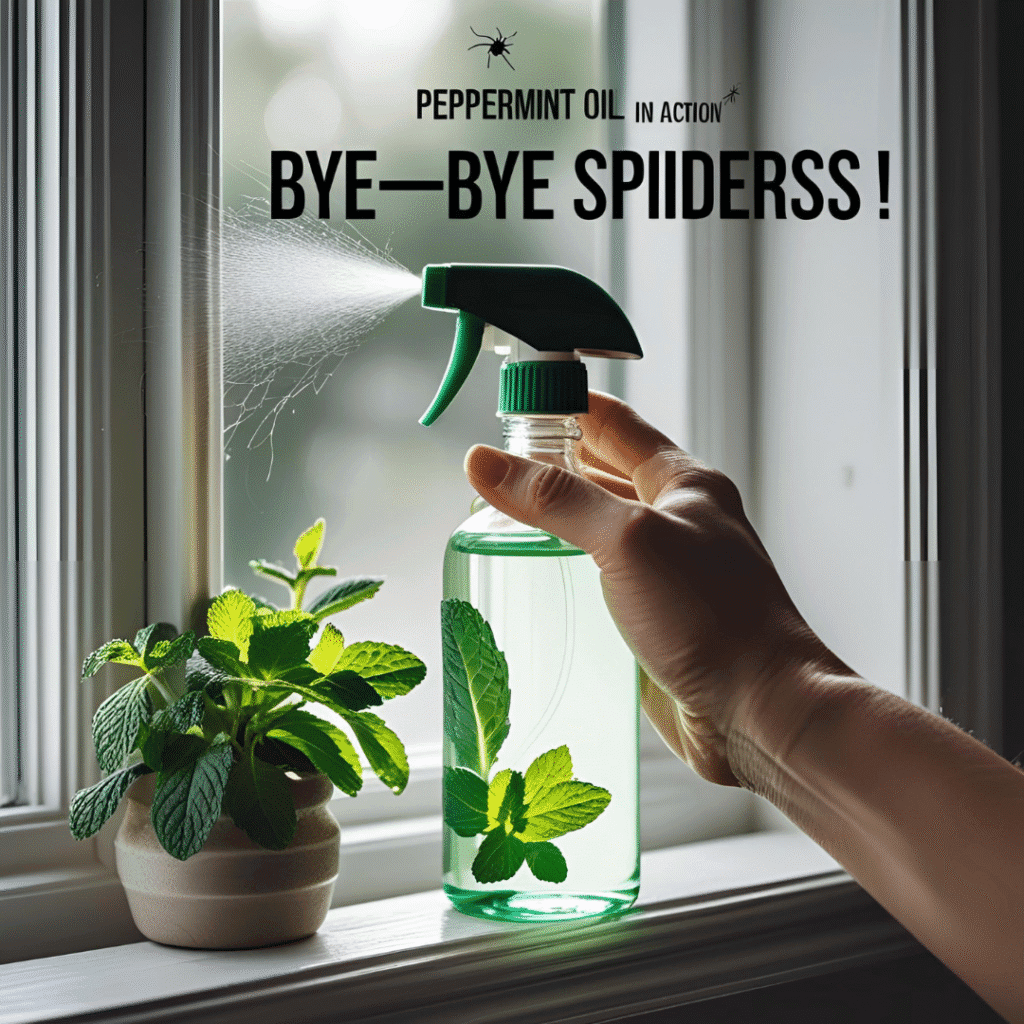
How to Make the Perfect DIY Spider Spray Recipe
Creating your own homemade spider repellent is incredibly simple and cost-effective. Here’s my tried-and-tested recipe that’s been keeping my home spider-free for months:
Essential Ingredients:
- 2 cups distilled water
- 15-20 drops pure peppermint essential oil
- 1 tablespoon liquid dish soap (helps oil bind with water)
- 1 spray bottle (16 oz capacity)
Step-by-Step Instructions:
Step 1: Fill your spray bottle with distilled water, leaving about 2 inches of space at the top.
Step 2: Add 15-20 drops of high-quality peppermint essential oil. Don’t skimp here – quality matters for effectiveness!
Step 3: Add one tablespoon of mild dish soap. This acts as an emulsifier, helping the oil distribute evenly.
Step 4: Secure the lid and shake vigorously for 30 seconds. The mixture should appear slightly cloudy.
Step 5: Label your bottle and store in a cool, dark place.
Pro Tip: Always shake before each use as oil and water naturally separate!
For more DIY home solutions, check out our comprehensive guide to natural cleaning products.
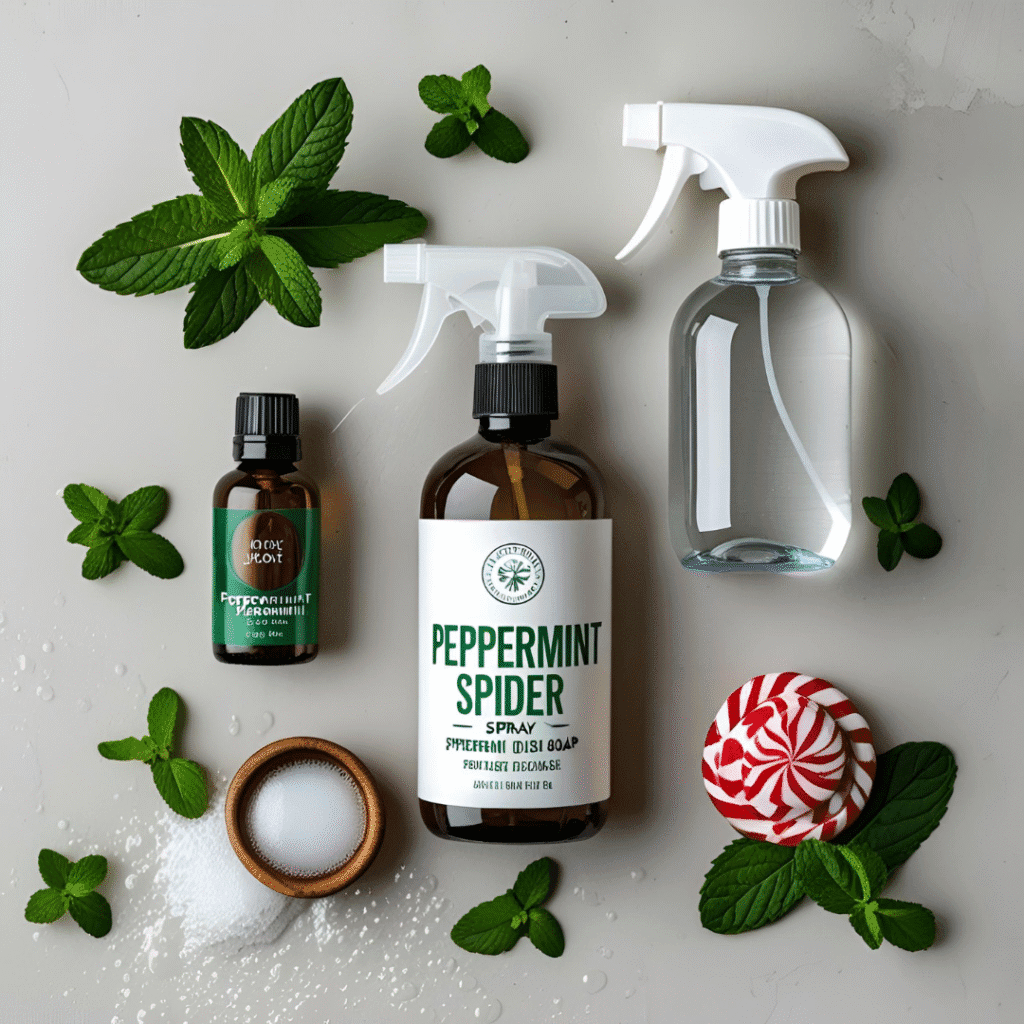
Natural Spider Deterrent: Best Application Methods
Using your peppermint oil spiders spray effectively requires strategic placement. Spray the solution on corners, window sills, doorways, and areas where you’ve noticed spider activity.
Primary Target Areas:
- Window frames and sills
- Door thresholds and frames
- Dark corners in closets
- Behind furniture and appliances
- Basement and attic entrances
- Garage door seals
Advanced Application Techniques:
Cotton Ball Method: Soak cotton balls with undiluted peppermint oil and place them in enclosed spaces like storage boxes, closets, and cabinets. Replace every 2-3 weeks.
Diffuser Strategy: Use a reed diffuser with peppermint essential oil in problem areas. This provides continuous, subtle scent coverage.
Perimeter Treatment: Create a protective barrier by spraying along baseboards and entry points. This natural pest control method prevents spiders from entering in the first place.

Important Safety Tips for Peppermint Oil Spider Control
While essential oil spider repellent is generally safe, proper precautions ensure the best experience for your family:
Essential Safety Guidelines:
Pet Safety: Keep cats away from treated areas as peppermint can be toxic to felines. Dogs generally tolerate it better, but monitor for any adverse reactions.
Skin Contact: Always dilute peppermint oil before use. Undiluted oil can cause skin irritation or allergic reactions.
Child Safety: Store oils and sprays out of reach. While natural, essential oils are concentrated and should be handled responsibly.
Patch Testing: Test your DIY spider spray on an inconspicuous area before treating visible surfaces to avoid staining.
Ventilation: Ensure adequate airflow when applying, especially in small spaces.
What Scents Do Spiders Hate Most? Natural Spider Repelling Options
Beyond peppermint oil spiders control, several other natural scents can enhance your pest control strategy:
Top Spider-Repelling Essential Oils:
- Peppermint oil (most effective)
- Tea tree oil (antimicrobial bonus)
- Eucalyptus oil (fresh, clean scent)
- Citrus oils (lemon, orange, grapefruit)
- Cinnamon oil (warm, inviting for humans)
- Lavender oil (relaxing aromatherapy benefit)
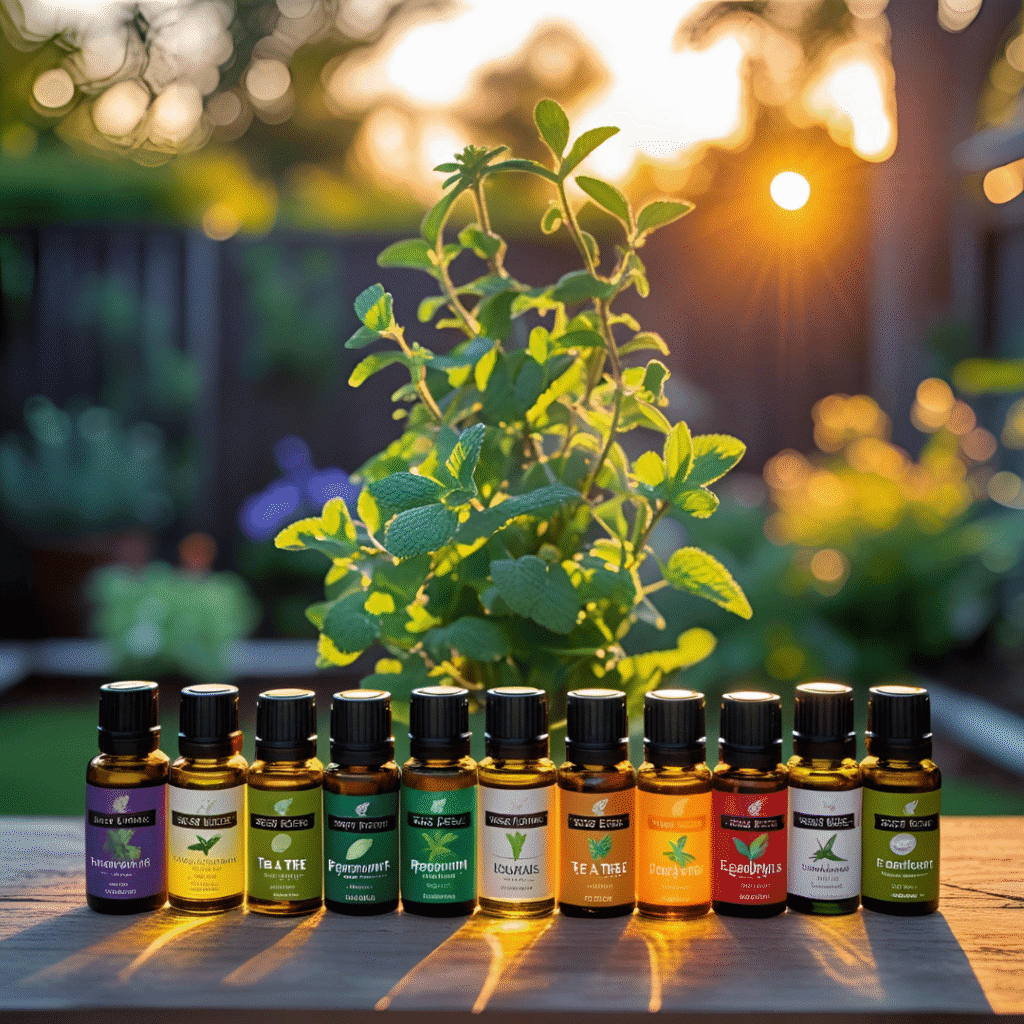
Non-Oil Natural Repellents:
- White vinegar (acidic properties)
- Coffee grounds (used grounds work well)
- Diatomaceous earth (food-grade only)
- Cedar chips (natural wood preservative)
Combining multiple scents can increase effectiveness, but peppermint oil remains the most reliable natural spider repellent.
Discover more about essential oils for home in our aromatherapy guides.
How Often Should You Use Peppermint Oil for Spiders?
Consistency is key for effective spider control with essential oils. Here’s my proven application schedule:
Regular Maintenance Schedule:
Weekly Applications: Spray high-traffic spider areas every 7 days during peak season (late summer/early fall).
Bi-weekly Maintenance: During cooler months, every 14 days is typically sufficient.
Seasonal Intensive: Apply daily for the first week when starting your natural spider deterrent program.
Weather Considerations: Reapply after heavy rain or high humidity, as moisture can dilute the oils’ effectiveness.
Signs You Need to Reapply:
- Scent has completely faded
- New spider webs appear
- Increased spider sightings
- After cleaning treated areas
The key to success with peppermint oil spiders control is maintaining consistent coverage before problems develop.
Alternative Natural Spider Control Methods
If DIY spider repellent alone isn’t sufficient, these complementary strategies enhance your natural pest control efforts:
Physical Prevention Methods:
Seal Entry Points: Use caulk to close gaps around windows, doors, and utility entrances.
Reduce Clutter: Eliminate hiding spots by organizing storage areas and removing unnecessary items.
Regular Cleaning: Vacuum regularly, especially in corners and under furniture where spiders hide.
Outdoor Maintenance: Trim vegetation away from your home’s exterior and remove debris.
Natural Predator Encouragement:
Attract spider-eating insects and birds by maintaining a balanced garden ecosystem. However, this approach requires patience and may not provide immediate results.
Professional Integration:
For severe infestations, combine natural spider repellent methods with professional assessment. Many eco-friendly pest control services now incorporate essential oil treatments.
Cost-Effective Natural Pest Control: Budget Analysis
Switching to peppermint oil spiders control offers significant financial advantages over traditional pest control methods:
Cost Comparison (Annual):
- Professional pest control: $300-600 per year
- Chemical sprays: $150-250 per year (plus health concerns)
- Peppermint oil solution: $25-40 per year
Long-term Benefits:
- Multi-purpose use: Peppermint oil works for ants, mice, and other pests
- Aromatherapy bonus: Pleasant scent improves home atmosphere
- No toxic residue: Safe for children and most pets
- Environmental impact: Biodegradable and sustainable
A single bottle of quality peppermint essential oil can last 6-8 months with regular use, making this natural spider deterrent incredibly economical.
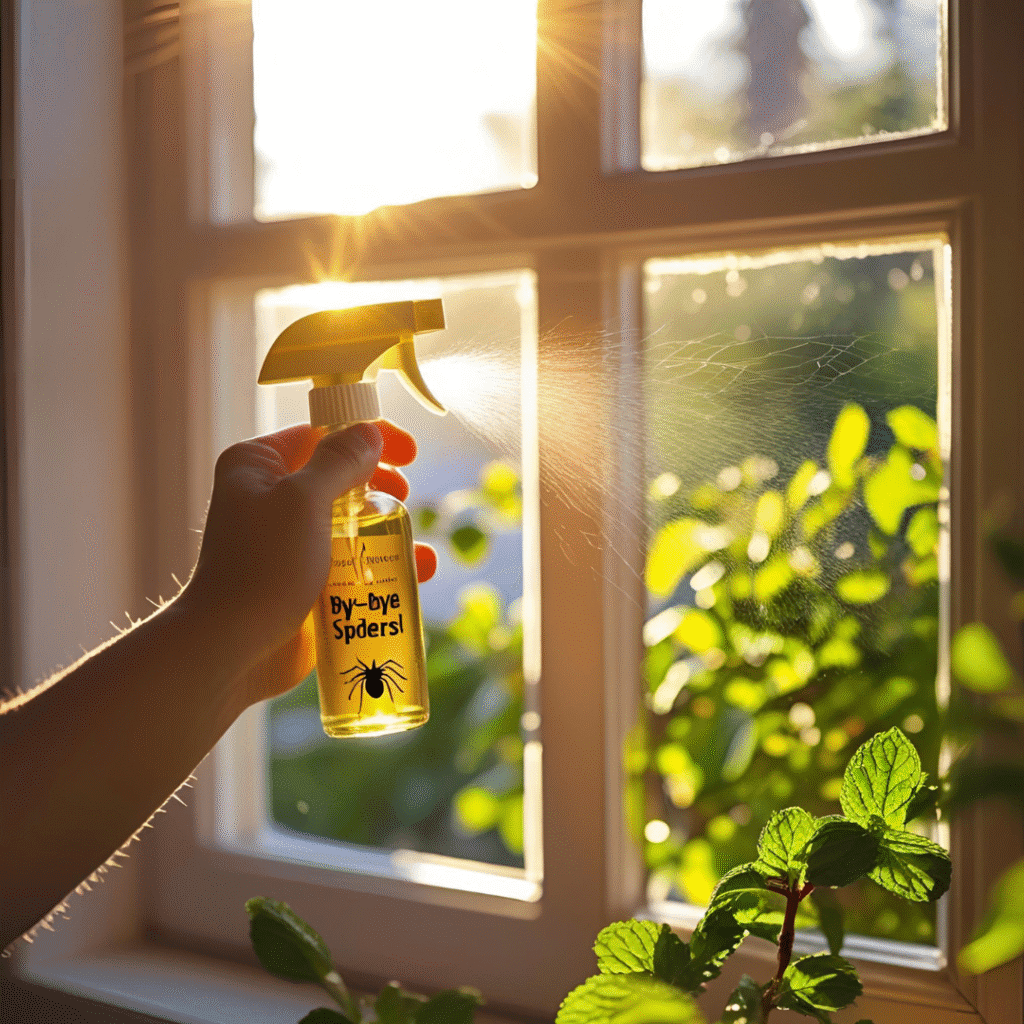
My Personal Success Story with Essential Oil Spider Control
Before discovering peppermint oil for spiders, I was constantly battling web-building invaders in my bathroom and closets. Chemical sprays left my home smelling harsh and made me worry about my family’s health.
The transformation after switching to natural spider repellent was remarkable. Within two weeks of consistent application, spider sightings dropped by over 90%. My home now smells fresh and clean, and I feel confident about the safety of my pest control methods.
The best part? Guests constantly compliment the pleasant peppermint scent, not knowing it’s actually my secret weapon against unwanted eight-legged visitors!
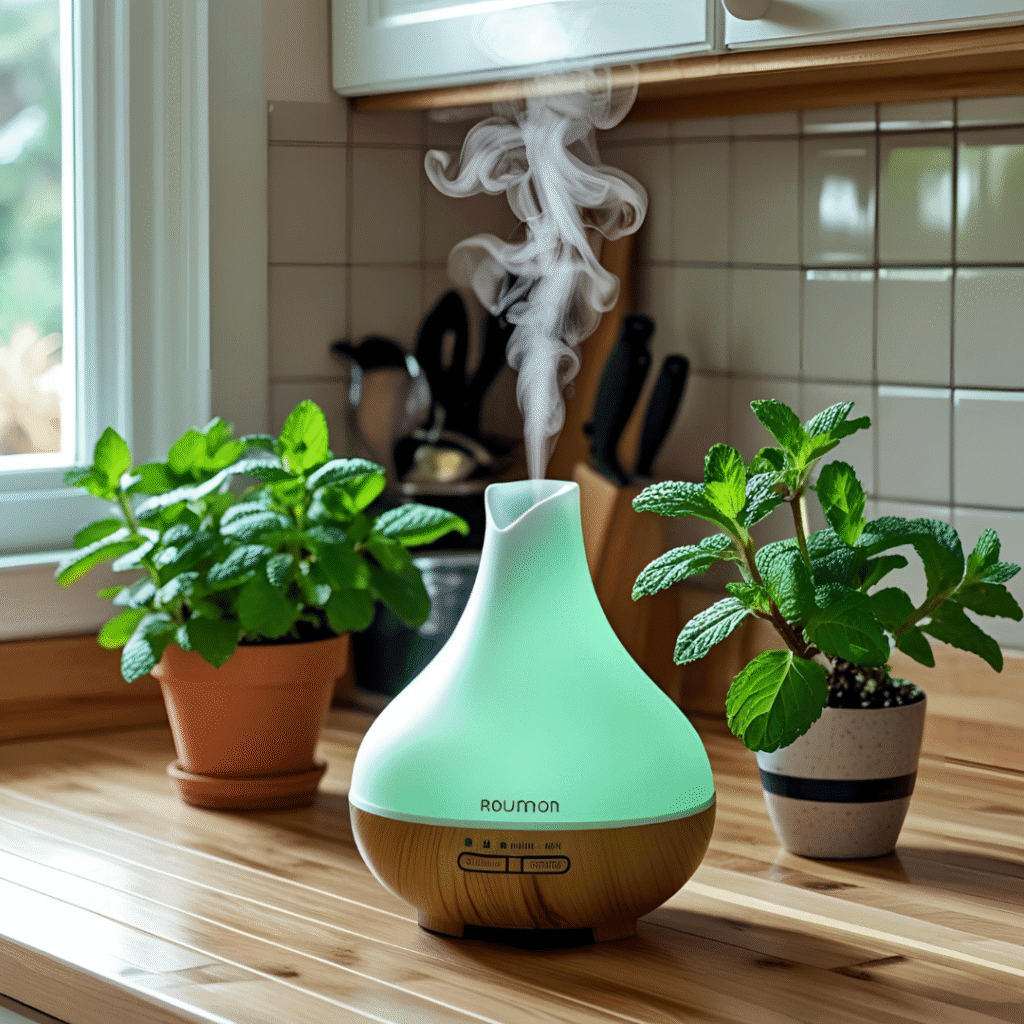
Seasonal Spider Control Strategy
Different seasons require adjusted approaches to peppermint oil spiders management:
Spring Preparation (March-May):
- Deep clean and declutter
- Apply DIY spider spray to potential entry points
- Check and seal any winter damage to exterior
Summer Maintenance (June-August):
- Weekly applications in problem areas
- Focus on outdoor furniture and entrances
- Monitor for increased activity
Fall Intensive (September-November):
- Daily applications during peak spider season
- Enhanced natural spider deterrent in basements and attics
- Combine with outdoor perimeter treatment
Winter Monitoring (December-February):
- Bi-weekly maintenance applications
- Focus on warm areas near heating sources
- Prepare for spring prevention
Advanced Natural Spider Repellent Techniques
Combination Spray Formula:
For stubborn spider problems, try this enhanced recipe:
- 2 cups water
- 10 drops peppermint oil
- 8 drops tea tree oil
- 5 drops eucalyptus oil
- 1 tablespoon white vinegar
- 1 tablespoon dish soap
Long-lasting Application Method:
Mix peppermint essential oil with coconut oil (1:10 ratio) and apply to cotton balls for extended-release protection in enclosed spaces.
Outdoor Perimeter Defense:
Create a protective barrier around your home’s foundation using a stronger concentration (30 drops per 2 cups water) for outdoor application only.

Frequently Asked Questions About Peppermint Oil Spiders Control
1. How long does peppermint oil keep spiders away?
Peppermint oil spiders repellent typically remains effective for 5-7 days indoors. The potent peppermint scent keeps spiders away from treated spots, but regular reapplication ensures consistent protection. Outdoor applications may need refreshing every 3-4 days due to weather exposure.
2. Is peppermint oil spider repellent safe around pets?
Essential oil spider control requires caution around pets, especially cats. Peppermint can be toxic to felines, so keep them away from freshly treated areas. Dogs generally tolerate it better, but monitor for any unusual behavior. Always use diluted solutions and ensure proper ventilation.
3. What’s the best peppermint essential oil for spider control?
Choose 100% pure, therapeutic-grade peppermint oil for maximum effectiveness. Avoid synthetic fragrances or pre-diluted oils as they lack the potency needed for reliable natural spider deterrent results. Organic options often provide superior concentration and purity.
4. Does DIY spider spray kill spiders or just repel them?
Peppermint oil spiders treatment focuses on repelling rather than killing. This natural spider repellent creates an environment spiders find unpleasant, encouraging them to relocate elsewhere. It’s a humane approach that doesn’t harm beneficial species while protecting your living space.
5. Can I use peppermint oil directly on spider webs?
Yes, you can spray homemade spider repellent directly on webs, but it’s more effective to treat areas where spiders might build new ones. Remove existing webs first, then apply your essential oil spider control solution to prevent reconstruction.
6. How much peppermint oil should I use in my spray?
For standard natural spider deterrent application, use 15-20 drops per 2 cups of water. Start with less if you’re sensitive to strong scents. You can increase concentration for severe infestations, but never exceed 30 drops per 2 cups for indoor use.
7. Will peppermint spider repellent stain my furniture?
Properly diluted peppermint oil spiders spray shouldn’t stain most surfaces, but always test on an inconspicuous area first. The dish soap in the mixture helps prevent residue buildup. Avoid spraying directly on delicate fabrics or unsealed wood.
8. Can I combine peppermint oil with other essential oils for spiders?
Absolutely! Natural spider repellent blends can be more effective. Try combining peppermint with tea tree, eucalyptus, or citrus oils. Keep the total essential oil amount the same (15-20 drops per 2 cups water) and experiment with ratios to find your preferred scent and effectiveness.
9. How quickly does essential oil spider control start working?
Most people notice reduced spider activity within 2-4 days of consistent peppermint oil for spiders application. However, complete effectiveness develops over 1-2 weeks as spiders learn to avoid treated areas. Patience and consistency are key for long-term natural spider deterrent success.
Conclusion: Your Natural Spider Repellent Success Story Starts Now
Using peppermint oil spiders control has completely transformed how I approach pest management in my home. This natural spider deterrent method offers everything we want as conscious homemakers: effectiveness, safety, pleasant scent, and environmental responsibility.
The beauty of DIY spider spray lies in its simplicity and reliability. No more worrying about harsh chemicals around your family or pets. No more expensive pest control bills. Just pure, natural protection that actually works.
Remember, successful essential oil spider control requires consistency and patience. Start with the basic recipe I’ve shared, apply it regularly to problem areas, and watch as your spider encounters become a thing of the past.
Your home deserves to be a sanctuary – beautiful, safe, and completely under your control. With peppermint oil for spiders, you’re not just solving a pest problem; you’re creating a naturally fragrant, toxin-free environment that reflects your commitment to healthy living.
Ready to start your spider-free journey? Grab some quality peppermint essential oil today and experience the difference that natural spider repellent can make in your beautiful home!
For more natural home solutions and lifestyle tips, explore our complete collection of eco-friendly living guides at StyleUpLadies.com.
Stay beautiful, stay natural, and stay spider-free!
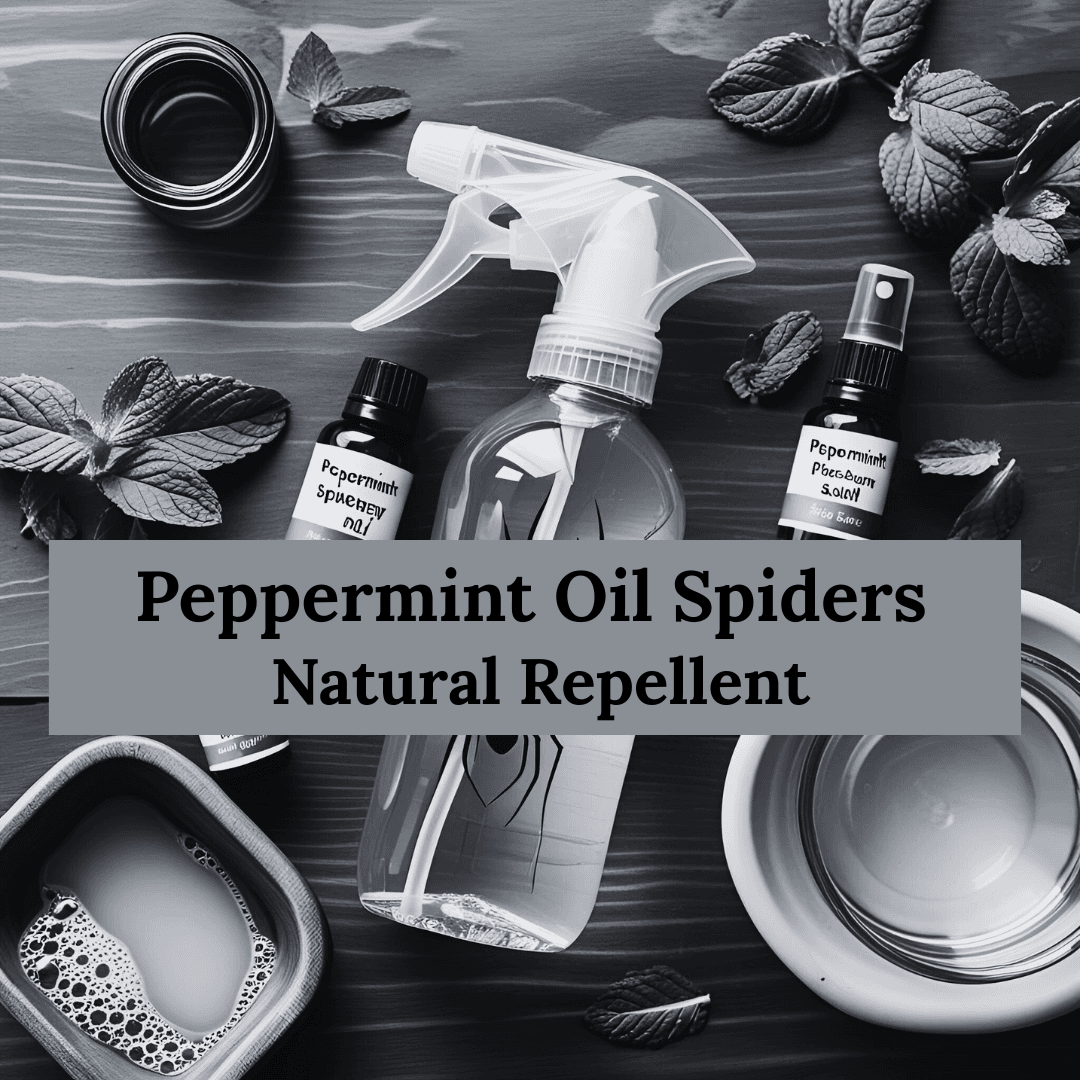







Leave a Reply